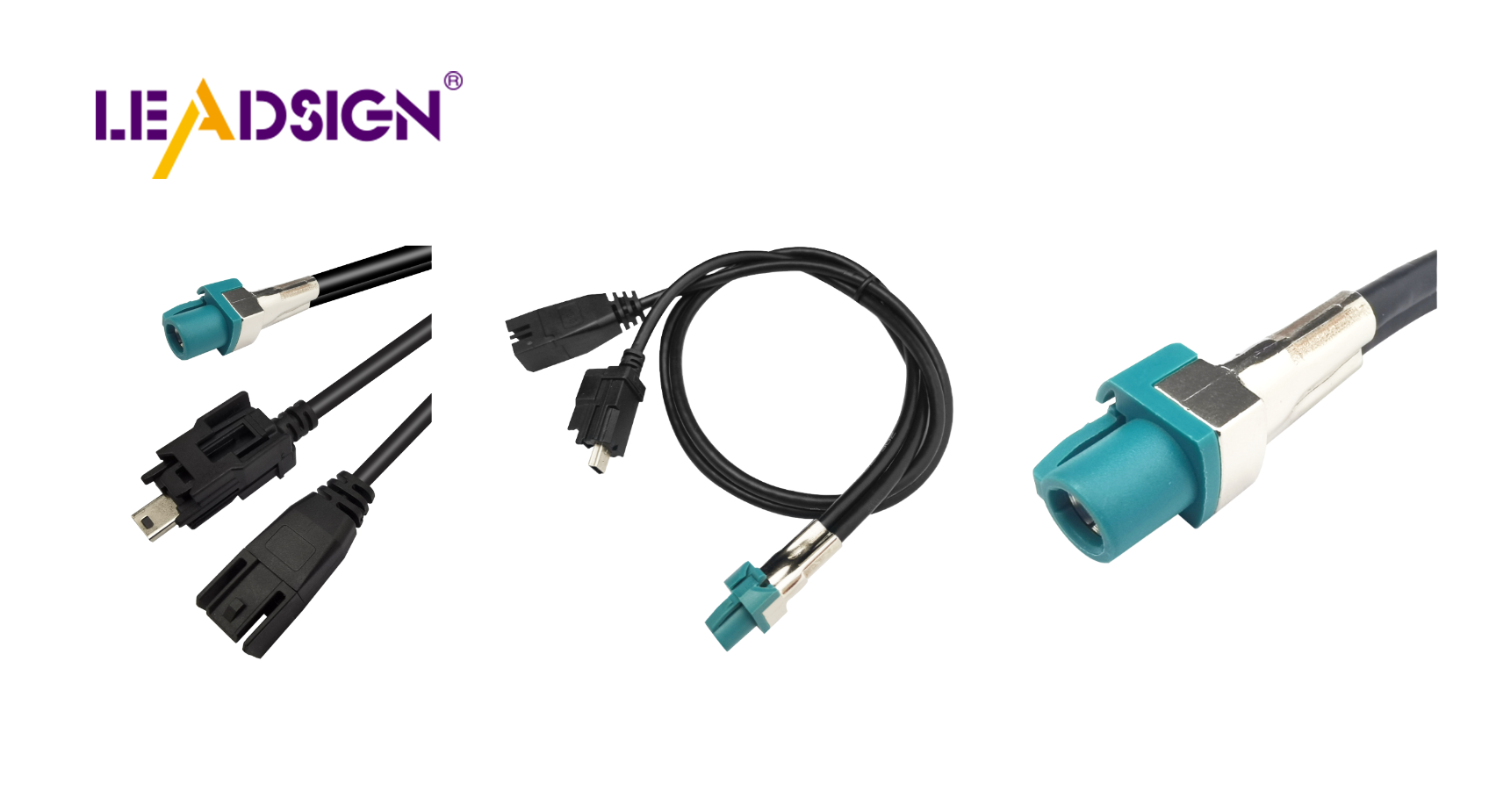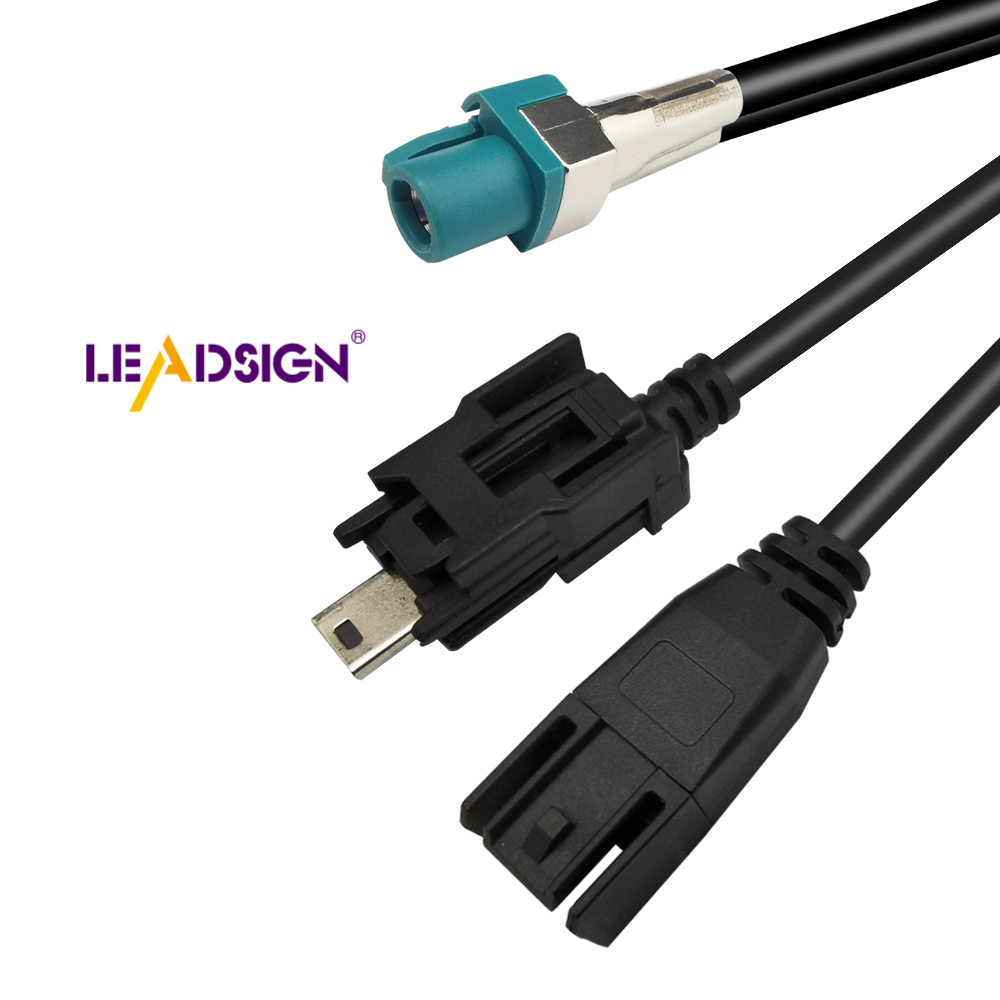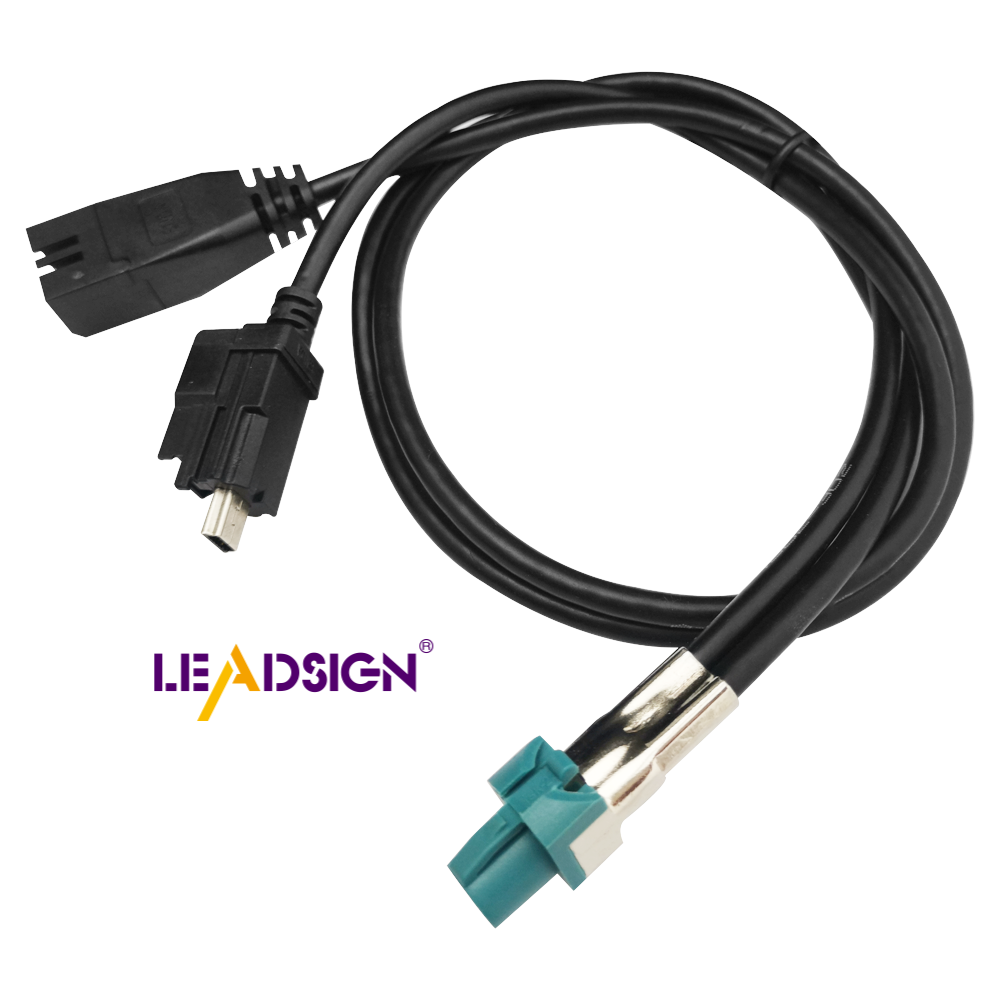Choosing the Right Types of Wire Connectors for Automotive Use

Choosing the right wire connectors for your vehicle is crucial. You need to ensure that the connections are secure and reliable. Automotive electrical connectors types play a significant role in maintaining the efficiency of your vehicle's electrical system. Common challenges include dealing with vibrations, temperature fluctuations, and exposure to moisture. These factors can affect the performance of your connectors. By selecting the appropriate connectors, you can prevent electrical failures and ensure the longevity of your vehicle's wiring system.
Understanding Automotive Electrical Connectors Types

Overview of Automotive Electrical Connectors Types
When working with automotive electrical systems, you encounter various connector types. Each serves a specific purpose and offers unique benefits.
Butt Connectors
Butt connectors join two wires end-to-end. You use them when you need a secure and straightforward connection. They are ideal for repairing or extending wires in your vehicle.
Ring Terminals
Ring terminals provide a reliable connection to a stud or screw. You often use them in situations where you need a strong and permanent connection. They are common in grounding applications.
Spade Terminals
Spade terminals, also known as fork terminals, allow for easy installation and removal. You use them when you need to connect wires to components like switches or relays. Their design makes them convenient for quick connections.
Bullet Connectors
Bullet connectors offer a quick-disconnect solution. You use them when you need to frequently connect and disconnect wires. They are popular in automotive applications due to their ease of use and reliability.
Materials and Durability
The material of your connectors affects their performance and longevity. Understanding the differences helps you make informed choices.
Copper vs. Aluminum
Copper connectors provide excellent conductivity and durability. You choose copper for its superior electrical performance. Aluminum connectors, while lighter, may not offer the same level of conductivity. Consider your specific needs when selecting between these materials.
Insulation Types
Insulation protects your connections from environmental factors. You find connectors with various insulation types, such as PVC, nylon, or heat-shrink. Each type offers different levels of protection and flexibility. Choose the insulation that best suits your application.
Weather Resistance
Weather-resistant connectors withstand harsh conditions. You need them in environments exposed to moisture, dust, or extreme temperatures. These connectors ensure your vehicle's electrical system remains reliable, regardless of the weather.
Buying Guide for Automotive Wire Connectors
When selecting automotive electrical connectors types, you must consider several factors to ensure optimal performance and reliability. This guide will help you make informed decisions.
Key Considerations
Compatibility with Vehicle Systems
You need to ensure that the connectors you choose are compatible with your vehicle's systems. Different automotive electrical connectors types serve various functions, so understanding your vehicle's requirements is crucial. Check the specifications of your vehicle's electrical system and match them with the connector's capabilities. This step prevents potential mismatches that could lead to electrical failures.
Load Capacity
Load capacity is another critical factor. You must select connectors that can handle the electrical load of your vehicle's systems. Each automotive electrical connectors type has a specific load capacity. Exceeding this capacity can cause overheating and damage. Always verify the load requirements of your vehicle's components and choose connectors that meet or exceed these needs.
Ease of Installation
Ease of installation is essential for efficient maintenance and repairs. Some automotive electrical connectors types offer straightforward installation processes, while others may require specialized tools or skills. Consider your level of expertise and the tools available to you. Opt for connectors that you can install easily without compromising the connection's integrity.
Common Mistakes to Avoid
Overlooking Material Quality
Material quality significantly impacts the performance of automotive electrical connectors types. You should not overlook this aspect. High-quality materials, such as copper, provide better conductivity and durability. Inferior materials may lead to poor connections and frequent failures. Always prioritize connectors made from reliable materials to ensure long-lasting performance.
Ignoring Environmental Factors
Environmental factors play a vital role in the longevity of your connectors. You must consider the conditions your vehicle will face, such as moisture, dust, and temperature extremes. Some automotive electrical connectors types offer weather-resistant features that protect against harsh environments. Ignoring these factors can result in premature connector failure. Choose connectors designed to withstand the specific environmental challenges your vehicle encounters.
By understanding these key considerations and avoiding common mistakes, you can select the right automotive electrical connectors types for your vehicle. This ensures a reliable and efficient electrical system, enhancing your vehicle's overall performance.
Frequently Asked Questions
How to Choose the Right Size?
Selecting the correct size for your wire connectors is crucial for ensuring a secure and efficient connection. Here are some key points to consider:
Importance of Wire Gauge
Wire gauge refers to the thickness of the wire. It plays a vital role in determining the current-carrying capacity. You must match the wire gauge with the connector size to prevent overheating and ensure optimal performance. Using a connector that is too small can cause resistance and heat buildup, while a connector that is too large may not provide a secure fit.
Matching Connector Size to Wire
To achieve a reliable connection, you need to match the connector size to the wire. Check the specifications of both the wire and the connector. Ensure they are compatible. This step helps maintain the integrity of the electrical system and prevents potential issues. Always refer to the manufacturer's guidelines for the best results.
Can I Use Household Connectors in Automobiles?
You might wonder if household connectors can be used in automotive applications. While it may seem convenient, there are important differences to consider:
Differences in Requirements
Automotive connectors are designed to withstand specific conditions, such as vibrations, temperature fluctuations, and exposure to moisture. Household connectors may not meet these requirements. They are typically intended for indoor use and may lack the durability needed for automotive environments. Always choose connectors specifically designed for automotive use to ensure reliability.
Safety Concerns
Using household connectors in automobiles can pose safety risks. They may not provide the necessary insulation or protection against environmental factors. This can lead to electrical failures or even fires. Prioritize safety by selecting connectors that meet automotive standards. This ensures your vehicle's electrical system remains safe and functional.
By understanding these frequently asked questions, you can make informed decisions when choosing wire connectors for your vehicle. This knowledge helps you maintain a safe and efficient automotive electrical system.
Best Wire Connectors for Automotive Use

When selecting automotive electrical connectors types, you must consider the specific needs of your vehicle. Different connectors excel in various applications. Here are some top picks to guide you in choosing the best connectors for your automotive needs.
Top Picks for Different Needs
Best for Heavy-Duty Applications
For heavy-duty applications, you need connectors that can handle high currents and resist wear and tear. Deutsch connectors stand out in this category. They offer robust construction and excellent performance under demanding conditions. You often find them in construction and agricultural equipment. Their durability makes them ideal for vehicles that require reliable connections in tough environments.
Best for Weather Resistance
Weather resistance is crucial for automotive electrical connectors types exposed to harsh conditions. Weather Pack connectors provide exceptional protection against moisture, dust, and temperature extremes. These connectors feature a sealed design that prevents water ingress, ensuring long-lasting performance. You should consider them for vehicles operating in challenging weather conditions. Their reliability makes them a popular choice for project cars and off-road vehicles.
Best for Easy Installation
Ease of installation is essential for quick repairs and maintenance. Ticonn Solder Seal Wire Connectors offer a user-friendly solution. These connectors simplify the installation process with their solder and seal technology. You only need a heat source to create a secure and waterproof connection. This feature makes them perfect for DIY enthusiasts and professionals alike. Their ease of use and reliability make them a top choice for those seeking hassle-free installation.
By understanding the strengths of these automotive electrical connectors types, you can make informed decisions for your vehicle. Each type offers unique benefits tailored to specific needs. Whether you require heavy-duty performance, weather resistance, or easy installation, these top picks provide reliable solutions for your automotive wiring challenges.
Choosing the right wire connectors for your vehicle is crucial. You ensure the safety and efficiency of your automotive wiring by making informed decisions. Consider key factors like compatibility, load capacity, and environmental conditions when purchasing. These elements play a vital role in maintaining a reliable electrical system. Prioritize quality and durability to prevent potential failures. By doing so, you enhance your vehicle's performance and longevity. Remember, the right connectors not only secure connections but also safeguard your vehicle's electrical integrity.
See Also
Significance of High-Speed Data Connectors in Automotive Sector
The Significance of FAKRA Connectors in Auto Uses
Benefits of High-Frequency Modular Connectors in Auto Sector
The Significance of FAKRA Connectors in Auto Sector
The Significance of FAKRA Auto Connectors in Contemporary Cars

